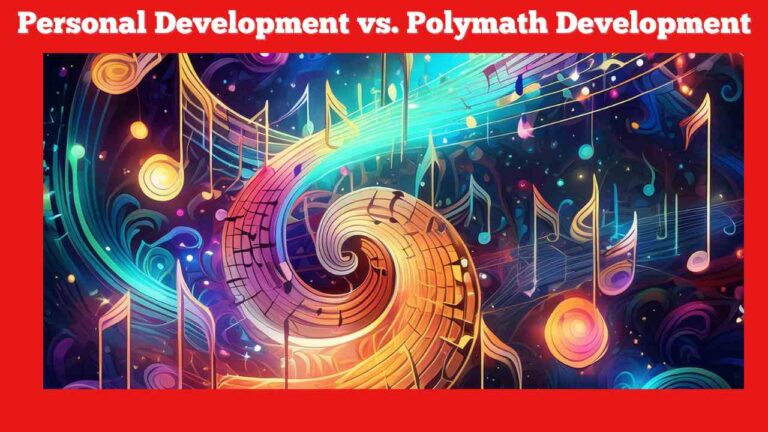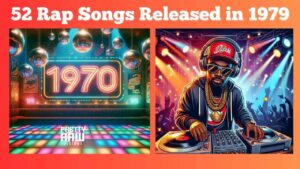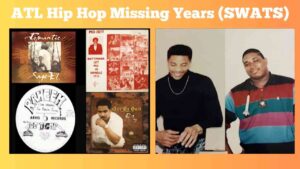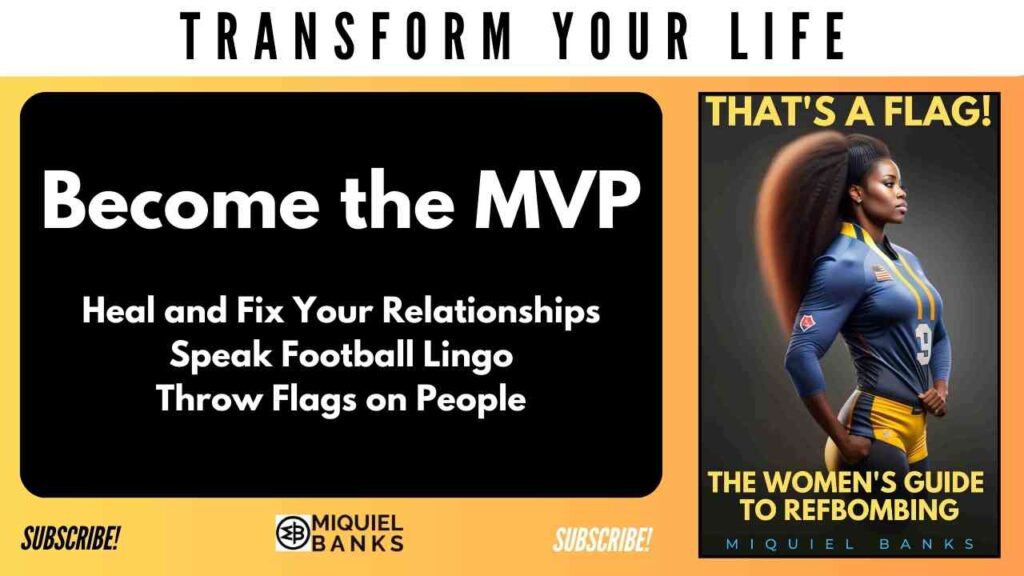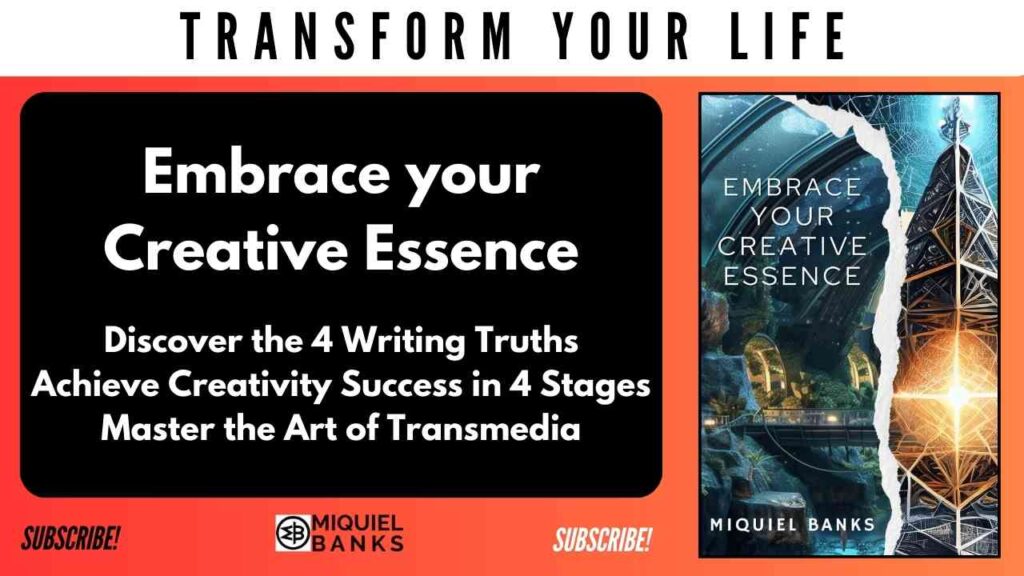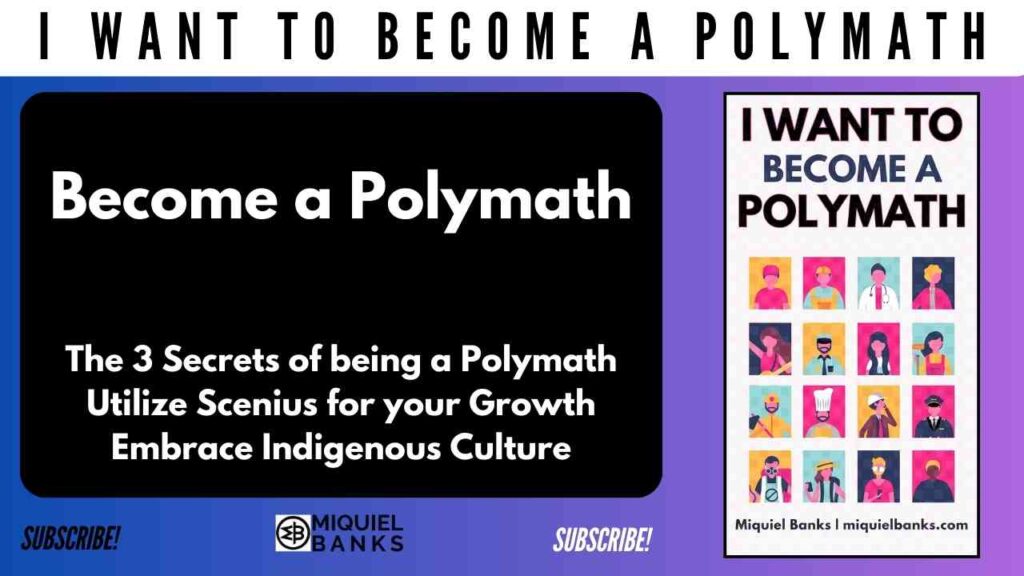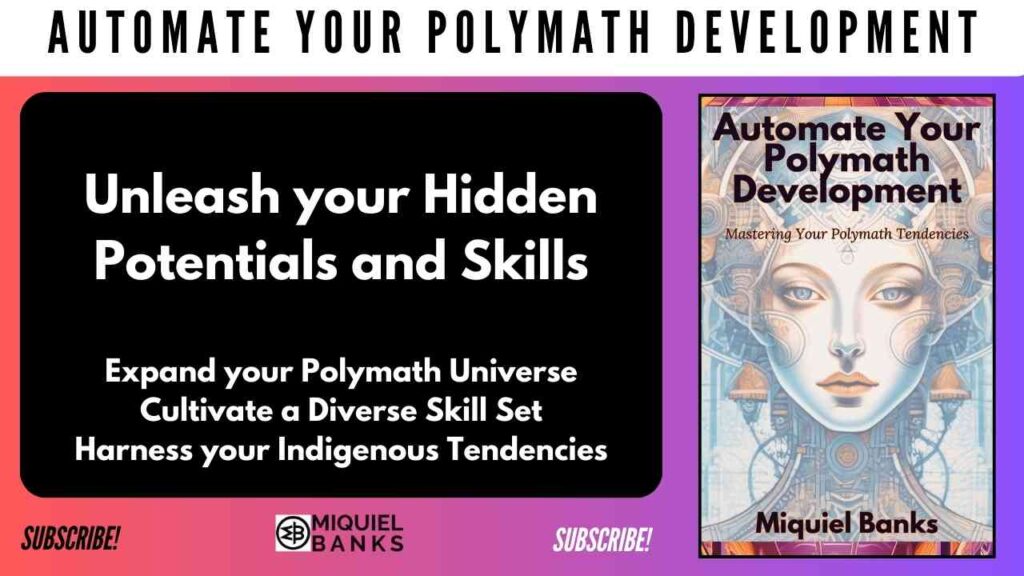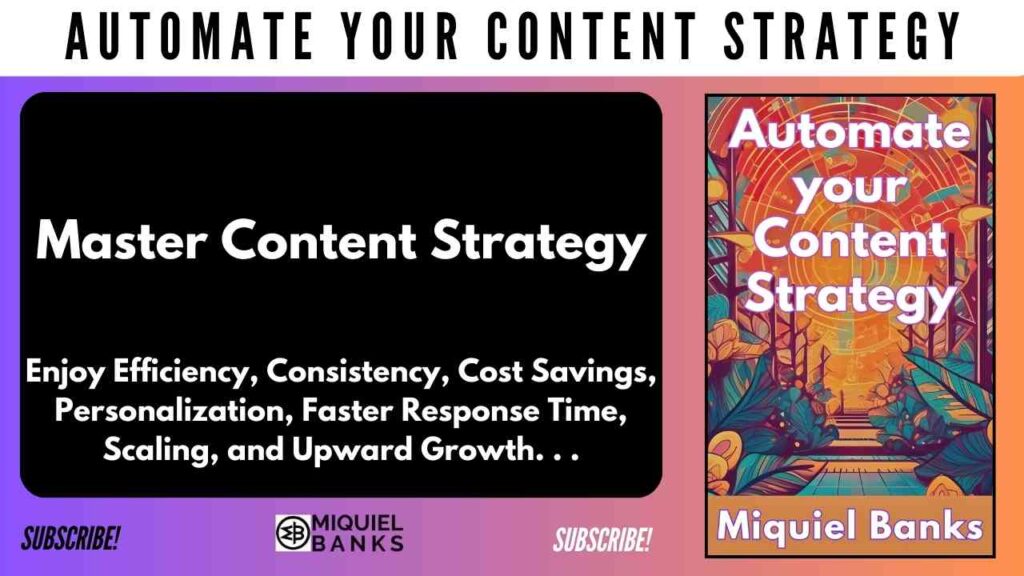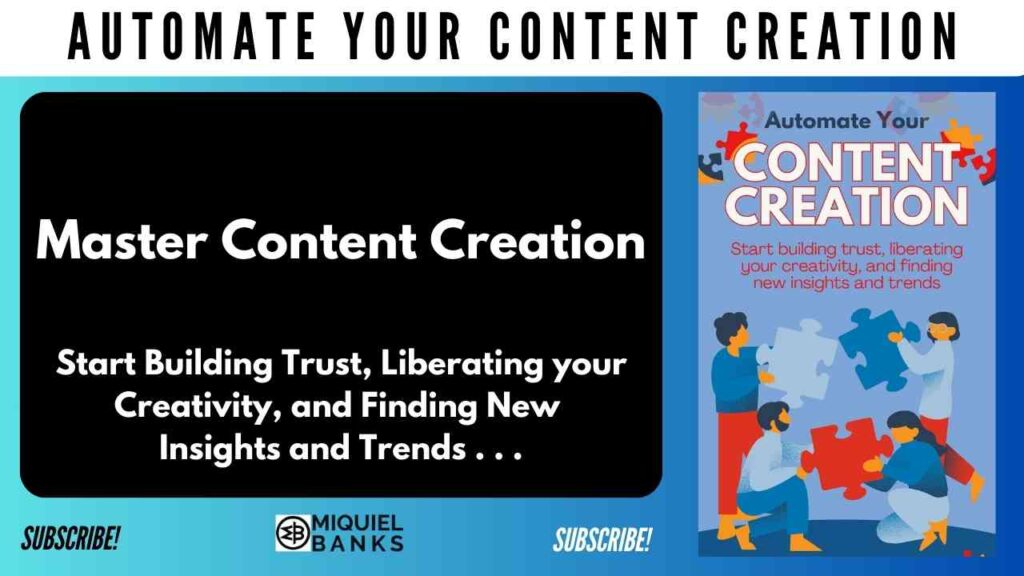Introduction
Hip hop culture, often celebrated for its artistic and expressive power, has uniquely fostered an environment that nurtures polymath development. Unlike traditional societal norms that encourage specialization, hip hop culture thrives on the intersection of diverse skillsets, from lyrical mastery and rhythmic innovation to entrepreneurial ventures and social activism. This cultural phenomenon demonstrates how embracing multiple disciplines can lead to profound personal development and enrich one’s creative and intellectual horizons. In this blog, we will delve into how hip hop serves as a modern-day scenius, propelling individuals toward becoming true polymaths and redefining the boundaries of personal and professional growth. Join us as we uncover the multifaceted influence of hip hop culture on the journey of becoming a polymath.
The Polymath Paradigm Unveiled
Historical Roots of Polymaths
Polymaths have existed throughout history, often revered as the pinnacle of human intellectual achievement. Figures like Leonardo da Vinci and Benjamin Franklin epitomize the blend of arts and sciences, showcasing the power of diverse skillsets. The term “Renaissance man” itself originates from this era, highlighting the value placed on broad knowledge and multiple talents. Historically, societies that encouraged exploration and education, such as ancient Greece and Renaissance Italy, were fertile grounds for polymath development. These environments fostered curiosity and interdisciplinary learning, enabling individuals to excel in various fields. However, the Industrial Revolution shifted societal focus towards specialization, creating a dichotomy between personal development and polymath development. Yet, hip hop culture’s rise in the late 20th century has reignited the celebration of multidimensional talents, proving that the spirit of polymathy is far from extinct. Hip hop, as a modern scenius, continues this legacy, encouraging the blending of diverse disciplines for holistic growth.
Polymath vs. Personal Development
Understanding the distinction between polymath development and personal development is crucial. Personal development typically focuses on improving specific skills or attributes, often within the confines of one’s chosen field. It emphasizes specialization, enabling individuals to become experts in a singular domain. In contrast, polymath development encourages the exploration of multiple disciplines, fostering a more comprehensive growth. This approach not only broadens one’s intellectual horizons but also cultivates a unique ability to connect disparate ideas. Hip hop culture exemplifies this philosophy by celebrating artists who are not only musicians but also entrepreneurs, activists, and innovators. The multifaceted nature of hip hop encourages individuals to transcend traditional boundaries, integrating various aspects of personal development into a cohesive whole. Thus, while personal development hones specific talents, polymath development expands the spectrum of abilities, creating well-rounded, versatile individuals capable of navigating an ever-changing world.
The Rise of Polymath Development
The resurgence of polymath development in contemporary times can be largely attributed to the evolving cultural and technological landscape. As the digital age ushers in unprecedented access to information, the barriers to learning new skills have significantly diminished. Hip hop culture, with its inherent emphasis on creativity and innovation, has played a pivotal role in this revival. Artists like Jay-Z and Kanye West exemplify modern polymaths, seamlessly blending music, fashion, business, and social activism. This cultural shift underscores the value of versatility in an interconnected world. The rise of online learning platforms, social media, and collaborative spaces has further democratized knowledge, making it easier for individuals to acquire and integrate diverse skills. Consequently, the modern scenius provided by hip hop culture fosters an environment where polymath development is not only possible but celebrated, encouraging a new generation to embrace a holistic approach to personal and professional growth.
Hip Hop Culture as a Catalyst
Origins and Evolution of Hip Hop
Hip hop originated in the 1970s in the Bronx, New York, emerging as a voice for marginalized communities. It began as a cultural movement encompassing four main elements: rapping (MCing), DJing, graffiti art, and breakdancing. Pioneers like DJ Kool Herc, Grandmaster Flash, and Afrika Bambaataa laid the foundation for what would become a global phenomenon. Over the decades, hip hop evolved from a grassroots movement into a multifaceted culture influencing music, fashion, language, and social issues worldwide. Its adaptability and inclusivity have allowed it to transcend boundaries, continually reinventing itself while remaining true to its roots. The genre’s evolution has seen the rise of influential figures who embody polymathic traits, blending artistic expression with entrepreneurial ventures and activism. This dynamic progression underscores hip hop’s role as a catalyst for personal and polymath development, inspiring individuals to explore and integrate diverse skillsets in their own lives.
Creativity and Scenius in Hip Hop
Hip hop culture epitomizes the concept of “scenius,” a term coined by Brian Eno to describe the collective genius emerging from a thriving, collaborative community. In hip hop, creativity flourishes through collaboration, competition, and innovation. Crews and collectives like the Wu-Tang Clan and A Tribe Called Quest have demonstrated how the convergence of diverse talents can produce groundbreaking work. The genre’s emphasis on sampling, remixing, and battling fosters an environment where ideas are constantly exchanged and refined. This communal creativity not only advances the art form but also propels individuals toward polymath development. By engaging in various elements of hip hop—whether it’s producing beats, writing lyrics, or designing album covers—artists are encouraged to cultivate a wide range of skills. This scenius-driven approach nurtures a culture of continuous learning and innovation, making hip hop a powerful catalyst for both personal development and the emergence of modern polymaths.
Hip Hop’s Influence on Diverse Skills
Hip hop culture’s influence extends beyond music, encouraging the development of a broad spectrum of skills. Artists like Pharrell Williams and Missy Elliott exemplify how hip hop fosters multidisciplinary talents. Pharrell’s ventures into fashion, design, and philanthropy highlight the genre’s encouragement of creative exploration. Similarly, Missy Elliott’s roles as a producer, songwriter, and performer demonstrate the integration of diverse skills within hip hop. This culture promotes a mindset of versatility and adaptability, essential traits for polymath development. From graphic design to business management, hip hop artists often wear multiple hats, breaking traditional boundaries. The DIY ethos prevalent in hip hop communities also empowers individuals to learn and master new skills independently. By embracing this holistic approach, hip hop not only enriches personal development but also cultivates a generation of multifaceted individuals capable of excelling in various domains. This dynamic interplay of skills underscores hip hop’s role as a catalyst for personal and professional growth.
Diverse Skillsets in Practice
Artistic Expression and Innovation
Artistic expression in hip hop is a dynamic blend of innovation and tradition, constantly pushing the boundaries of what art can be. The genre encourages artists to experiment with new sounds, techniques, and mediums, fostering a culture of perpetual creativity. For instance, Kendrick Lamar’s fusion of jazz, funk, and soul in his album “To Pimp a Butterfly” showcases how hip hop can innovate while honoring its roots. This spirit of innovation is not limited to music; it extends to visual arts, dance, and fashion, where artists continually redefine norms. Graffiti and street art, integral to hip hop culture, have evolved into respected art forms displayed in galleries worldwide. This relentless pursuit of artistic innovation nurtures a polymath mindset, encouraging individuals to explore and refine multiple creative skills. By embracing diverse forms of expression, hip hop artists exemplify how innovation can lead to profound personal and professional growth, inspiring others to follow suit.
Entrepreneurial Ventures in Hip Hop
Hip hop culture has become a fertile ground for entrepreneurial ventures, demonstrating the seamless integration of business acumen with artistic talent. Artists like Jay-Z and Dr. Dre exemplify how hip hop can serve as a launching pad for diverse entrepreneurial pursuits. Jay-Z’s transition from rapper to business mogul, with ventures in music streaming, sports management, and fashion, showcases the expansive opportunities within hip hop. Dr. Dre’s success with Beats by Dre, which revolutionized the audio industry, highlights the innovative potential of hip hop entrepreneurs. These examples illustrate how a background in hip hop equips individuals with the skills needed to navigate and excel in the business world. The genre’s emphasis on hustle, creativity, and resilience translates effectively into entrepreneurial success. By merging artistic creativity with strategic business thinking, hip hop culture fosters a unique environment where polymath development thrives, encouraging individuals to explore and capitalize on diverse opportunities.
Cross-Disciplinary Collaborations
Cross-disciplinary collaborations are a hallmark of hip hop culture, showcasing its ability to blend various fields into cohesive, innovative projects. Collaborations between musicians, visual artists, fashion designers, and technologists are commonplace, each contributing their unique expertise to create something greater than the sum of its parts. For example, the partnership between Kanye West and designer Virgil Abloh has resulted in groundbreaking fashion lines and artistic installations. These collaborations blur the lines between different disciplines, fostering a rich environment for polymath development. Hip hop artists frequently collaborate with filmmakers, resulting in visually stunning music videos and documentaries that push creative boundaries. These cross-disciplinary endeavors not only enhance the artistic product but also expand the skillsets of everyone involved. By embracing such collaborations, hip hop culture exemplifies how working across disciplines can lead to innovative outcomes and profound personal growth, encouraging a more integrated approach to learning and creativity.
Personal Growth Through Hip Hop
Self-Discovery and Identity
Hip hop culture serves as a powerful tool for self-discovery and identity formation. The genre’s emphasis on authenticity and personal expression allows individuals to explore and articulate their experiences, struggles, and aspirations. Through lyricism and storytelling, artists like Tupac Shakur and Lauryn Hill have delved deep into issues of identity, race, and personal growth, providing listeners with relatable narratives that inspire introspection. This process of self-expression fosters a deeper understanding of one’s values, beliefs, and purposes. Moreover, the collaborative nature of hip hop encourages individuals to connect with others, further enriching their sense of self and community. By navigating their unique paths within the culture, artists and enthusiasts alike undergo significant personal development, discovering hidden talents and gaining confidence. Hip hop offers a platform for people to redefine themselves, embracing their multifaceted identities and gaining the courage to pursue diverse avenues of personal and professional growth.
Building Resilience and Confidence
Hip hop culture is a crucible for building resilience and confidence. The genre’s origins in marginalized communities imbue it with a spirit of perseverance and defiance. Artists often share their stories of overcoming adversity, which resonate deeply with listeners facing similar challenges. For example, Eminem’s rise from poverty and addiction to global stardom is a testament to the power of resilience. The competitive nature of hip hop, particularly in elements like freestyle battles and breakdancing, also fosters a resilient mindset. Participants learn to handle criticism, improve under pressure, and persist through setbacks. This environment not only builds thick skin but also cultivates confidence. As individuals refine their craft and gain recognition within the community, their self-assurance grows. Hip hop encourages a mindset that setbacks are temporary and surmountable, reinforcing the belief that with enough effort and determination, one can achieve greatness. This resilience and confidence are transferable, benefiting all areas of personal and professional life.
The Journey of Lifelong Learning
Hip hop culture inherently promotes the journey of lifelong learning. The genre’s ever-evolving nature requires artists and enthusiasts to continuously adapt and grow. From mastering new production techniques to staying current with fashion trends, hip hop demands constant learning. This culture of perpetual education extends beyond the artistic realm into personal and professional development. Artists like J. Cole and Childish Gambino exemplify how hip hop encourages ongoing self-improvement and intellectual curiosity. J. Cole’s pursuit of higher education and Childish Gambino’s ventures into acting and screenwriting highlight the value placed on continuous learning. This ethos resonates widely, inspiring fans to embrace a similar mindset in their own lives. By engaging with hip hop, individuals are encouraged to seek new knowledge, develop diverse skills, and remain open to new experiences. This commitment to lifelong learning not only enriches personal growth but also cultivates a versatile, adaptable approach to navigating an ever-changing world.

